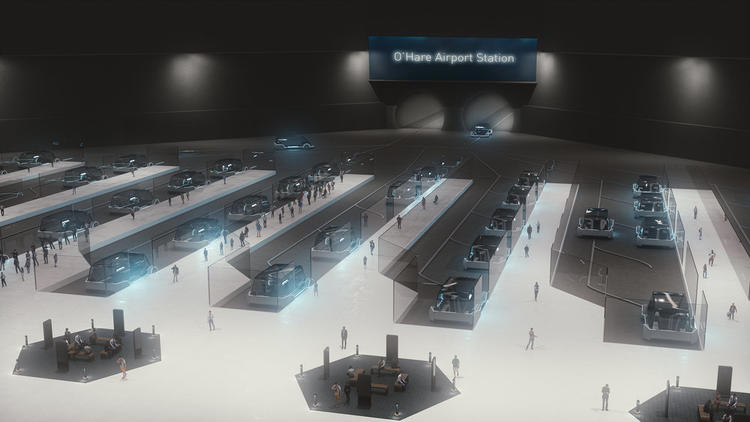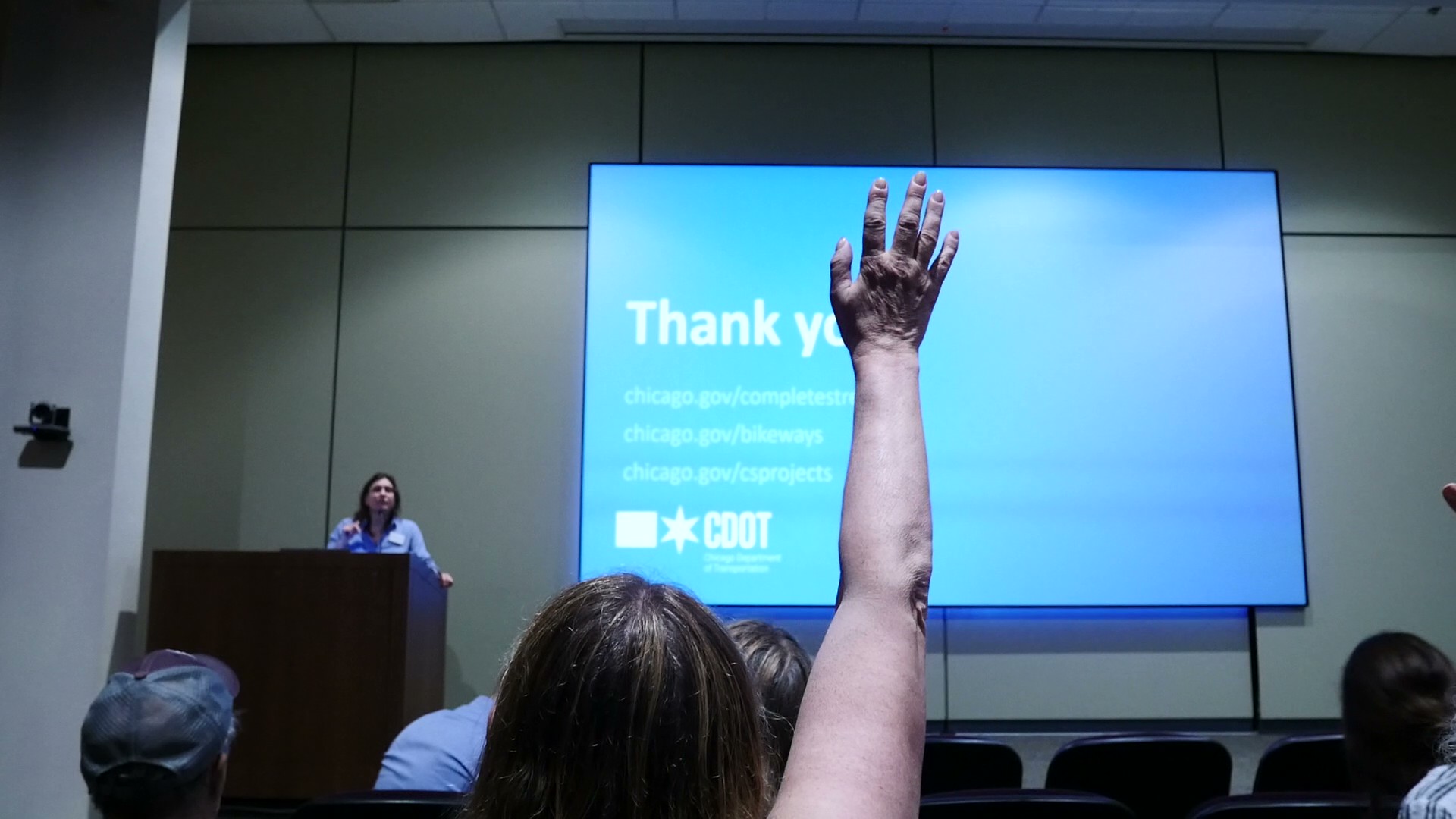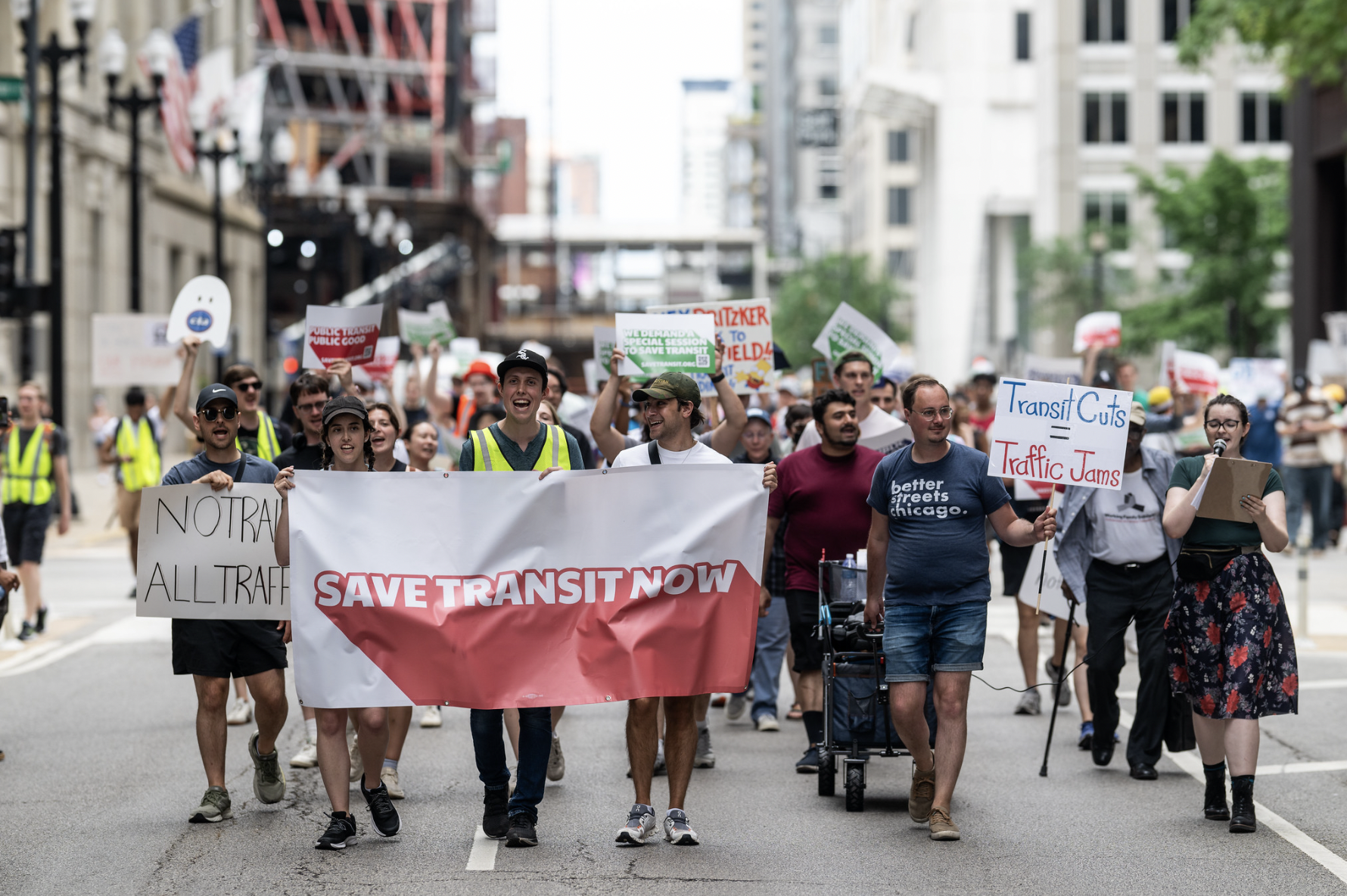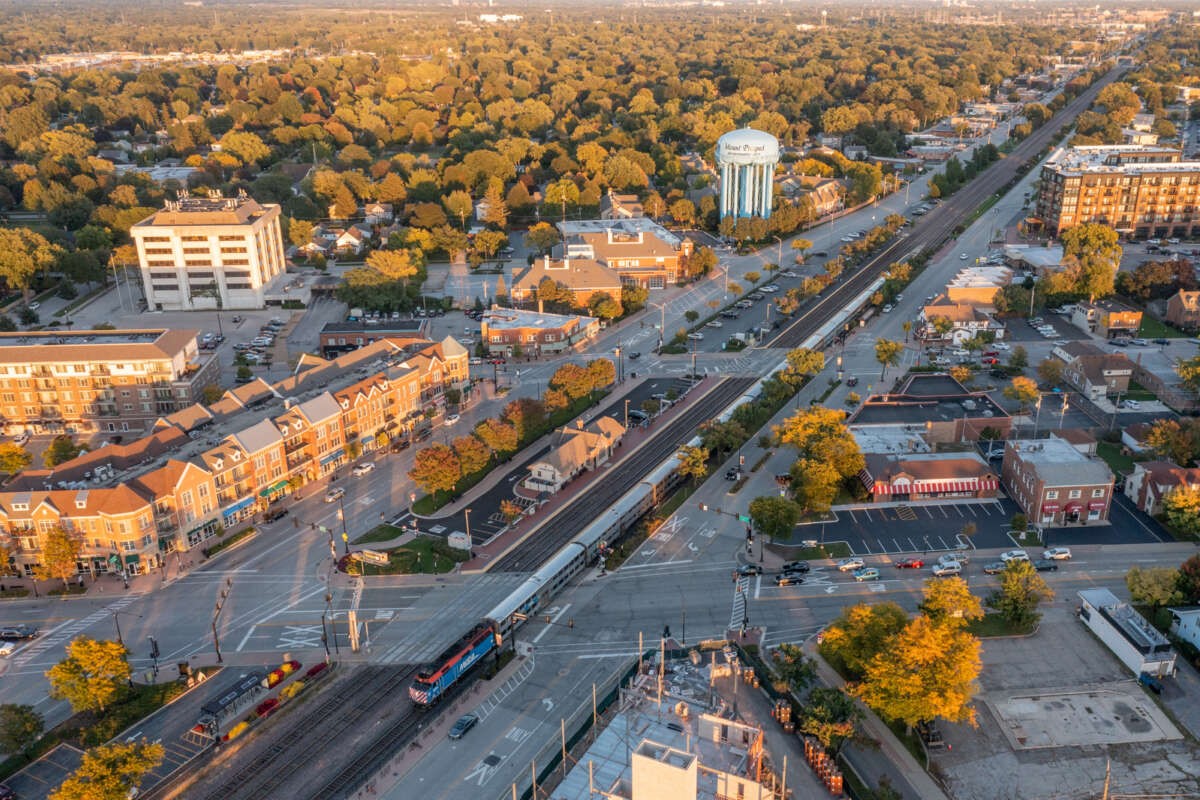Last week the city of Chicago announced that it had tapped tech guru Elon Musk and his excavation firm the Boring Company to build the express transit route between downtown’s Block 37 and O’Hare Airport. Musk claims he can whisk travelers to and from the airport in a mere 12 minutes, compared to the current 40-45 minutes for the Blue Line, by digging twin tunnels and shooting people through them at 125-150 mph in 8-16-person cars using “electric skate” technology.
Musk also says he can complete the project for $1 billion, compared to, say, the $2.3 billion the city has budgeted for the south Red Line extension, thanks to his proprietary digging method. He claims he will run the cars as frequently as every 30 seconds (the Blue Line runs every four to ten minutes), and the city estimates that tickets will cost $20-25 dollars, compared to $5 from the airport and $2.50 to it via the ‘L’. The city says no taxpayer funds will be used for the project.
We’ll have more analysis of the issue on Streetsblog Chicago in the near future but for starters, here are some of the arguments why this appears to be an unfortunate development for Chicago transit.
The project could be a financial trainwreck for the city. Toronto’s Union Pearson Express offers a cautionary tale for Chicago. That line’s ridership was dismal until the fare was cut from $20 to $9 U.S., requiring a heavy public subsidy. And what happens if tunneling doesn’t wind up being as cheap as Musk projects (he’s provided little evidence that he can actually dig significantly cheaper or faster than conventional methods) and he runs out of money? While the city of Chicago assures us that “the contract will include protections to ensure taxpayers will be protected against any costs incurred by an incomplete project,” several aldermen, plus commentators like my Chicago Reader colleague Ben Joravsky, have expressed skepticism.
The O’Hare express won’t address regional transit needs. While the Midwest High Speed Rail Association has supported the idea of an airport express, they’ve advocated for it to be part of a larger project called CrossRail, which would create a direct route from O’Hare to the southeast side via a new South Loop rail connection, which could be the beginnings of a regional high-speed network. In contrast, MWHSRA recently noted, Musk’s plan will simply transport travelers between the airport and downtown – only 10 percent of O’Hare travelers are making that trip -- and the route won’t be compatible with any existing transit systems.
Few Chicagoans are asking for this. In a recent blog post, the Active Transportation Alliance pointed out that while there has been strong support from Chicago residents and community groups for improving neighborhood transportation access through strategies like the Red Line extension and converting the Metra Electric District line to rapid transit, the O’Hare Express will largely benefit elites. They note that improving capacity, speed, and reliability on the Blue Line instead would benefit people from all over the city, as well as air travelers.
Small pods are a highly inefficient way to transport people. Urban planner Daniel Kay Hertz, who has been warning Chicago about the folly of the O’Hare Express project for years, crunched the numbers on this subject:
At 500-2,000 people per hour per direction Musk's technology has the capacity of between 0.5 and 2 blue line trains per hour
— Daniel Kay Hertz is hounded by woes (@DanielKayHertz) June 14, 2018
Elon Musk hates public transit. Just a reminder, here’s what he said at a conference last December. “I think public transport is painful. It sucks. Why do you want to get on something with a lot of other people, that doesn’t leave where you want it to leave, doesn’t start where you want it to start, doesn’t end where you want it to end?”






